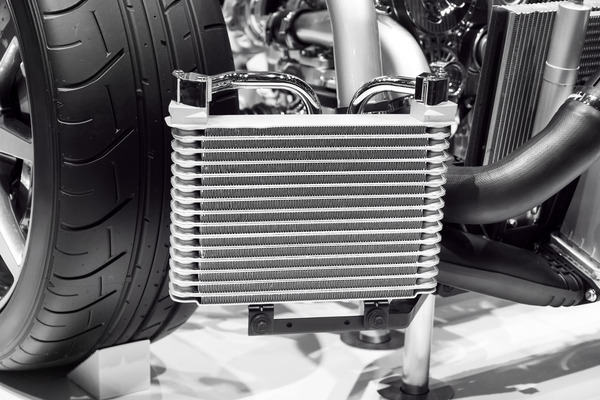
Are you familiar with the essential components that keep your car's engine running smoothly? One crucial part of the cooling system that often goes unnoticed is the radiator, which we will talk about more below.
The Basics - What Is a Radiator?
Before we dive into its function, let's start with the basics. A radiator is a heat exchanger device found in vehicles, including cars, trucks, and SUVs. It plays a critical role in regulating the temperature of the engine by dissipating excess heat generated during operation.
How Does It Work?
The radiator works by circulating coolant (a mixture of water and antifreeze) through the engine to absorb heat. As the hot coolant flows through the engine, it absorbs heat from the engine components, helping to regulate the engine's temperature. Once the coolant reaches a certain temperature, it is directed to the radiator.
Function of the Radiator
Once the hot coolant enters the radiator, its main function begins. The radiator consists of a series of small tubes or passages surrounded by thin fins. As the hot coolant flows through these tubes, air passing through the radiator (either from the vehicle's movement or a fan) helps dissipate the heat from the coolant into the surrounding atmosphere.
Why Is It Important?
The function of the radiator is crucial for maintaining the engine's temperature within safe operating limits. An overheating engine can lead to serious damage, including warped cylinder heads, blown head gaskets, and even engine seizures. By efficiently dissipating heat from the coolant, the radiator helps prevent these issues and ensures the engine operates at its optimal temperature.
5 Common Radiator Issues
Leaks
Over time, the radiator's seals, hoses, or core may develop leaks, causing coolant to escape. This can lead to a loss of coolant, engine overheating, and potential damage to other engine components.
Corrosion
The metal components of the radiator, such as the core and fittings, can corrode due to exposure to coolant, water, and environmental factors. Corrosion weakens the radiator's structural integrity and may cause leaks or blockages.
Clogging
Dirt, debris, and scale can accumulate inside the radiator and block the flow of coolant. This reduces the radiator's cooling efficiency, leading to engine overheating and potential damage if not addressed promptly.
Failing Thermostat
The thermostat regulates the flow of coolant through the radiator and engine. A malfunctioning thermostat can cause the engine to run too hot or too cold, leading to inefficient radiator operation and potential engine damage.
Coolant Contamination
Contaminants such as oil, grease, or air can enter the radiator and mix with the coolant. This can compromise the coolant's ability to absorb and dissipate heat, reducing the radiator's effectiveness in cooling the engine. Regular coolant flushes can help prevent this issue.
For all your cooling system maintenance and repairs, call Circle M Tire & Automotive! We are the local solution to all things car-related.